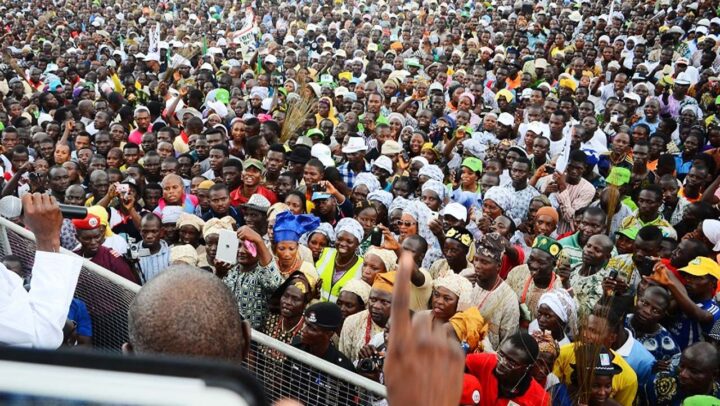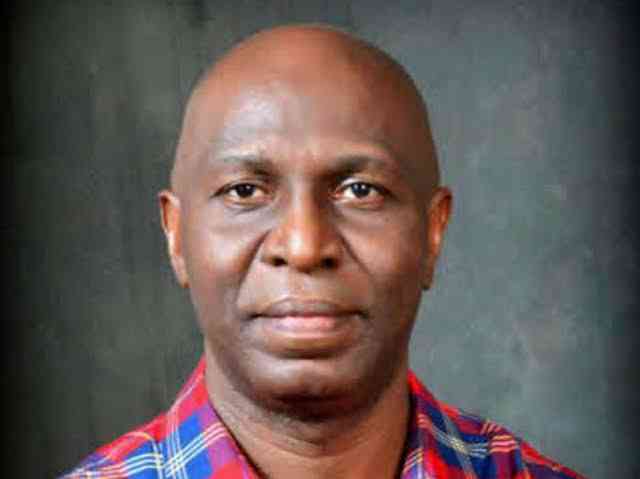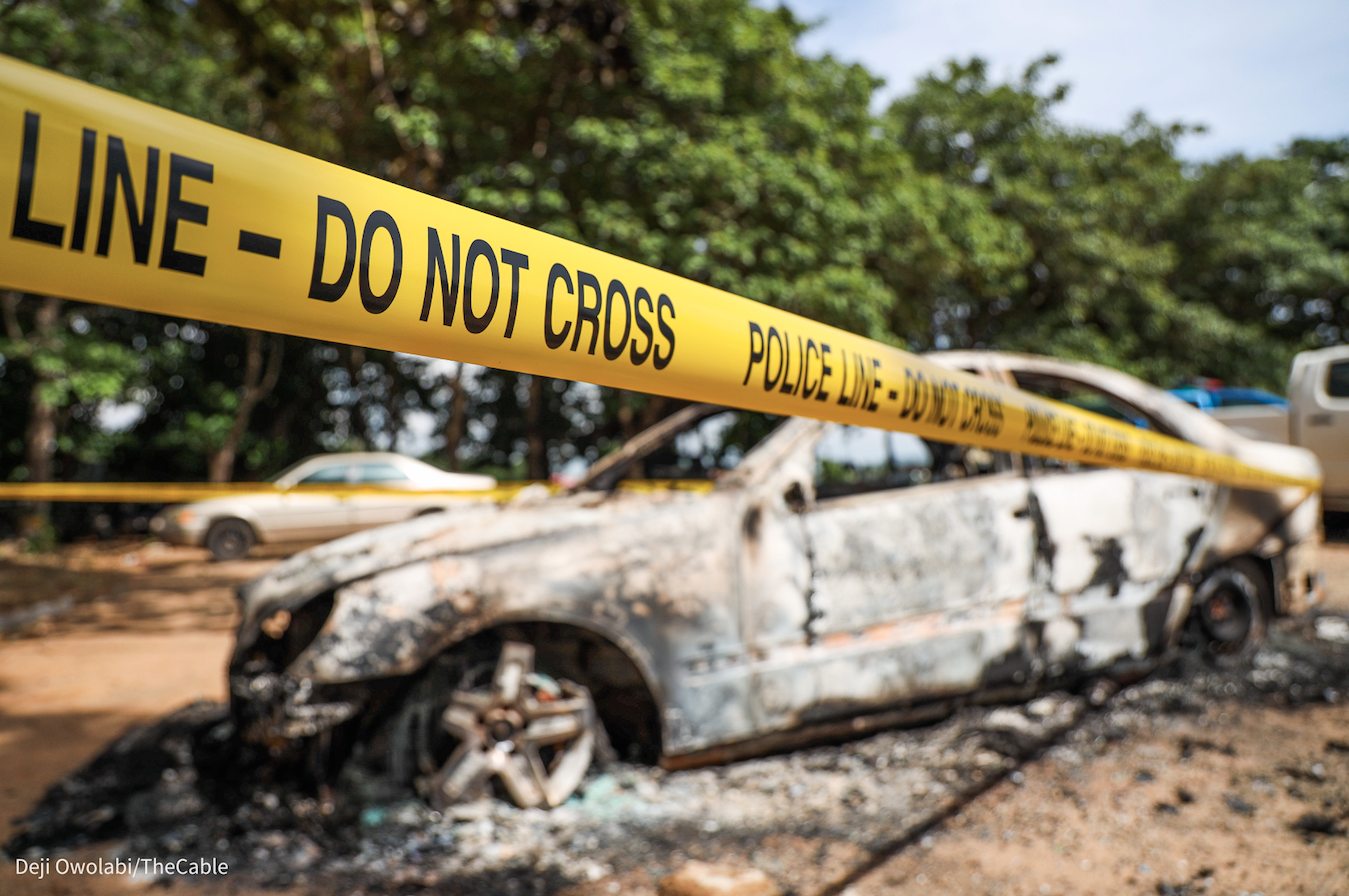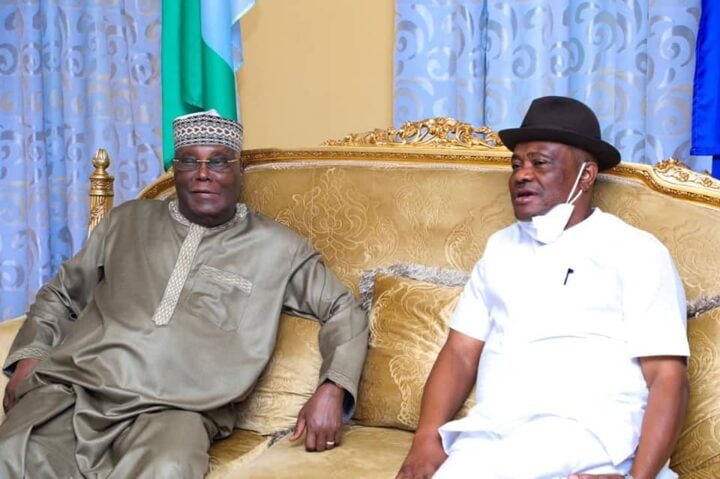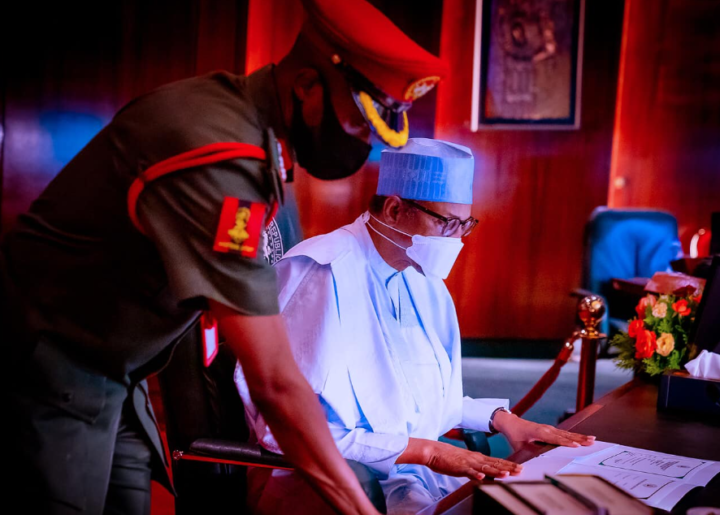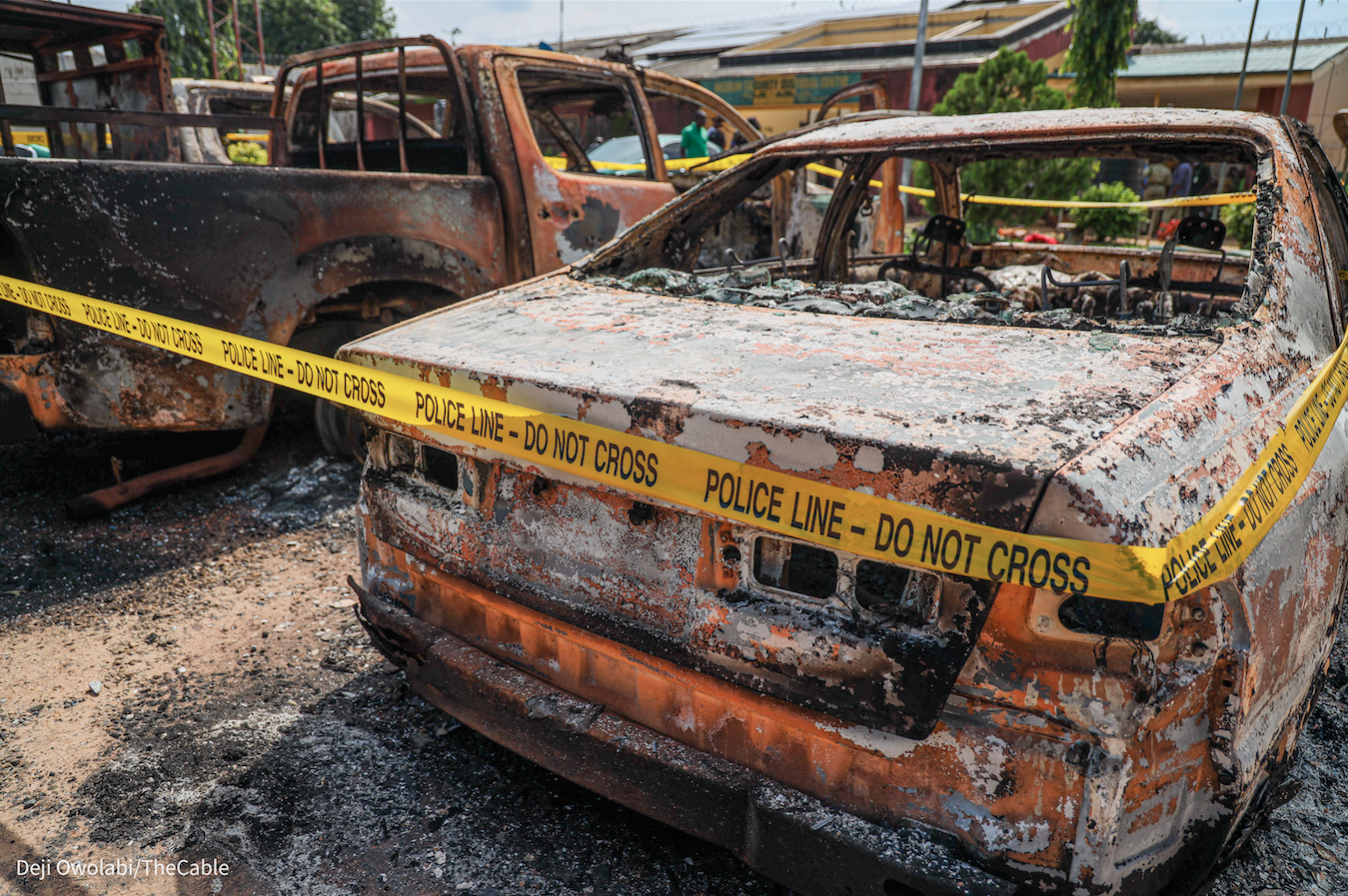As the race for who succeeds President Muhammadu Buhari come May 29, 2023, hots up, all the factors that define our national politics have come to the fore once again, like ever before. Factors like religion, ethnicity, economics and even personal interests are all out with a view to having an impact on the final analysis of things. But this time around, it has gone a notch higher as the battle begins to assume the dimension of an “Armageddon”. Different ethnoreligious groups are beating the “drum of war” in such a way that it seems after the election, the losers would cease to be Nigerians, as in a “winner-takes-all” contest.
It is like the losing parties will cease to exist or be Nigerians. The whole hullabaloo boils down to issues of ethnoreligious balancing on the tickets of those parties which candidates are gunning to take up the job. Meanwhile, I do not envy whoever wins because it is, at the moment, a job I consider to be “not the most attractive” in the land, due to the enormity of the challenges ahead as indicated by our current situation.
I have deliberately avoided getting involved in the nauseating debates on who is wrong or right, bad or less bad (because there is, apparently, no good candidate in the race); evil or saintly, among the various candidates of the four major political parties contending for the 2023 presidential election. The debate has to do with which combination of the presidential tickets as far as ethnoreligious balancing is concerned is most acceptable, and most reflective of the mood of the country, right now. But which mood, if I may ask? Is it the mood that was the creation of the political class just to cause divisions and enmity among the different groups of the masses to their selfish political end, even though the latter groups are one on account of their socioeconomic situations? Come on! We need to get a bit more serious and realise that this is a democracy and it is all about the preponderance of choices, and the people’s inalienable rights to choose out of free will. There are more than a dozen political parties that have registered their respective candidates for the election. Voters can always choose from the list.
Before now, there was only a duopoly of two major political parties that could be considered serious contenders in the forthcoming 2023 presidential race. But following the defections of Peter Obi and Rabiu Musa Kwakwansom from the People’s Democratic Party (PDP) to the Labour Party (LP) and from the All Progressives Congress (APC) to the New Nigeria People’s Party (NNPP) respectively, the whole narrative of a two-horse-race election became history and we now talk of at least four political parties that could be considered serious contenders namely; the ruling APC, the PDP, the LP and the NNPP. That is one of the beauties of democracy on display.
Advertisement
That Nigeria is a heterogeneous nation, with many fault lines, is a fact. And that, none of the fault lines is as pronounced as the ethnoreligious one is another fact. It is, therefore, not surprising that in every facet of our public life, we have had to contend with having to take those facts into consideration when it comes to such issues as; recruitment into public offices, political or otherwise, and allocation of scarce resources in terms of project execution across the country. It (the fault line) has become so conspicuous that whenever an appointment is made, the first question an average Nigerian asks is: “Is he or she a Christian?”, once his or her place of origin is established. Nobody bothers to find out anything about competence, and strength of character to deliver.
So, it is not surprising to note that immediately after the conclusion of the presidential primaries of the different parties, Nigerians became curious, wanting to know who, each of the victorious aspirants chooses as a running mate. The unwritten code in our political firmament is: if you’re from the south-east, south-west or south-south, you’re condemned to picking a running mate from the north who must not be of the same faith as you are, and vice versa. For instance, if you are a Muslim, your running mate must be a Christian and vice versa. This is an unwritten code among the different groups that formed each of the political parties in 1998 following the demise of the then-maximum ruler, late General Sani Abacha. It must, however, be noted that it is more difficult for a northern Christian to emerge as a presidential candidate of any of the major political parties in Nigeria than it is for a Muslim to emerge as a candidate. The “why”, is a topic for another day.
In a nutshell, with the current ethnoreligious configuration, all northern Christians would ever get is the senate presidency that appears to have been conceded to the north-central which has a sizeable number of Christians, while the north-west is primed for both the presidency and the vice presidency, the north-east can only hope for the vice presidency and can be sure of getting it.
Advertisement
Now that the APC, with a Muslim southerner as its presidential candidate, has settled for a Muslim/Muslim ticket and the PDP sees nothing wrong in a Muslim northerner succeeding a fellow Muslim northerner without the slightest of compunctions for not choosing a running mate from the south-east and NNPP sees no qualms jettisoning the clamour for politics of inclusion to give a sense of belonging the people of the south-east and went ahead to choose a running mate from the south-south; and the Labour Party with a south-eastern Christian presidential candidate and a Muslim running mate from the north-west, ignoring the north-central and the north-east, Nigerians need to interrogate other alternatives to see which of then meet their yearnings and aspirations. The cacophony of discontents owing to various reasons, adduced by the various groups, calls for that deeper interrogation.
Of great concern to me, however, is the over fixation of the electorates on the (erroneous) notion that: “You can only be elected president of the Federal Republic of Nigeria if you run on the platform of either PDP or APC”. Now that NNPP and LP have come into the mix, it has become a multiplicity of options and it would be ideal for Nigerians to look even further beyond these four because it is on account of that erroneous notion that many Nigerians are, inadvertently, denying themselves their (inalienable) democratic right of choosing from the numerous alternatives available.
If one considers the gross misgovernance (or non-governance, as I prefer to call it), orchestrated by the lethal combination of incompetence and nepotistic corruption, under the APC-led federal government, I don’t think it is worth it dissipating so much energy on the issue of their ill-informed and ill-conceived decision to go for a Muslim/Muslim ticket. They parade a Muslim presidential candidate, Ahmed Bola Tinubu, from the south-west, and a Muslim vice, Kassim Shettima, from the north-east, with a purely rational calculative aim of securing the bloc vote from the Muslim north rather than national integration. If one also considers the antecedents of the PDP in their 16 years of ruling during which they set the tone for the ongoing socioeconomic woes that the APC has come to gazette, they do not deserve a second look from Nigerians. And those, like Daniel Bwala, who purport to be so enamoured by ethnoreligious balancing but prefer PDP to the APC, have fraudulently forgotten that an Atiku presidency will inadvertently be endorsing a northerner and a Muslim taking over from Buhari with the same demographic indices. This would translate to at least 12 years of a northern presidency rather than the gentleman agreement of two-term of eight years after which power shift to the other region is expected. Atiku, a Muslim Fulani man, gunning to succeed a fellow Muslim Fulani man, against the understanding that after eight years in one region demonstrates that the party has no working relationship with that agreement.
The Labour Party’s ticket that appears to have ticked all the boxes – a Christian president, Peter Obi, from the south (east) with a Muslim vice, Ahmed Datti, from the north (west), failed to take into consideration the fact that the north-east and north-central have also been marginalised since 1999 and, therefore, deserve the vice presidential slot more than the north-west. While the north-east has produced the vice president once, in the colour of Atiku, senate president, in the shape of the incumbent, and the speaker of the house of representatives once (Yakubu Dogara), from 1999 to date, the north-central has been limited, only, to the senate presidency twice (David Mark and Bukola Saraki).
Advertisement
In the case of the NNPP, it did not fare any better. They have a Muslim president, Rabiu Musa Kwakwanso, from the north-west, and a Christian running mate, Bishop Isaac Idahosa, from the south-south, not minding the fact that the south-east has been limited to the presidency of the senate and house of representatives’ speakership, since 1999. The south-west has produced a president and a vice, in Olusegun Obasanjo, and Yemi Osinbajo respectively. And the south-south has produced the president and the vice president in Goodluck Jonathan. In the south-east, apart from when they were using the senate presidency to play “Elewe njewe” between 1999 and 2007 (Evans Enweren, Chuba Okadigbo, Adolphus Wabara, and Anyim Pius Anyim), there has been nothing tangible for them in this fourth republic as far as elective national posts are concerned.
The major problem lies in the fact that most Nigerians appear to be too entrapped by the belief that a Nigerian president must emerge either from the ruling APC or the opposition PDP. Meanwhile, we have other parties that could give them a breath of fresh air. Many young Nigerians, especially on social media, see the Labour Party’s candidate (Peter Obi) as one. But some believe he has, in the past, wined and dined with the “devil” in the existing political establishment. Remember he was a two-term governor on the platform of the All Progressives Grand Alliance (APGA) in Anambra state and running mate to Atiku on the platform of PDP, in 2019, after defecting.
Just like the APC had violated the unwritten code of ethnoreligious balancing within the framework of rotation among regions, so has the PDP through its choice of Atiku, a northern Fulani Muslim, to succeed another northern Fulani Muslim, in the shape of the incumbent president Muhammad Buhari. But some people’s grouse with the Obi presidency is its lack of ethnic-regional balancing. The part of the north, from where he chose his running mate is viewed as an injustice to the two other zones in the north; the north-central and north-east. They think he should have looked in the direction of either the north-east or the north-central, as the north-west has, since 1999, produced two presidents, a vice president, and four speakers of the house of representatives among other occupants of some strategic offices. Nonetheless, Obi still looks the closest to what many Nigerians who are tired of the old PDP/APC’s established political hegemony want.
Nigerians need to make APC and PDP pay for their previous and current political misdemeanours. The insolence of the APC, selecting a running mate for its presidential candidate without recourse to the unwritten agreement of ethnoreligious balancing which serves as an in-built mechanism that still holds the country together is no unifier. And the PDP too must be made to pay a price for the indiscretion of thinking it is wise for another northern Muslim to succeed President Buhari instead of the south-east, whose ascension to the presidency would obviously douse tensions of secessionist agitation in the region. Not that alone, an Igbo presidency would also strengthen national unity.
Advertisement
By and large, none of the four most popular tickets (APC, PDP, LP and NNPP) is without a highlight that comes with as many disadvantages as there are, advantages. Whichever of the tickets one pushes for, there would be some convincing to do for Nigerians to accept it. If you go for APC, you have to convince those who are against it on why and how they should overlook a mono-religious arrangement. In the APC, are there no presidential materials among its Christian members in the north? If you go for PDP or NNPP, you need to tell the rest of the country how and why they should go for at least, 12 if not 16 years of uninterrupted northern presidency. And then, for LP, it is a matter of hearkening to the yearnings and aspirations of the Igbo who have, for more than half a century, cried against being excluded systemically from national politics but in the process, decides to further marginalise the Middle Belt and north-east in its choice of a running mate. Why?
The prospective voters need to realise that politics is a game of numbers and more so, now that votes seem to be counting unlike before, they hold the proverbial “four aces” in the race to choose Buhari’s successor. Thanks to INEC’s marginal, but progressive improvements since 2015. If everyone rejects, in unison, the choices of the big four political parties and vote for another less-known party, the aggregation of their (protest) votes will translate to a rejection of the old order and herald the birth of a new one. This is only, in so far as the votes are not split across the numerous parties. So, I shudder to ask: Why the unnecessary fixation, by the masses, on the “Big Four”?
Advertisement
Why the Big Four fixation, when we have loads of other candidates whose choices of running mates, align with what many Nigerians seem to be clamouring for? Others like; Yabagi Sani, who is the presidential candidate of the Action Democratic Party (ADP) with his running mate, Udo Okey -Okoro, from the south-east; Ado-Ibrahim Abdulmalik, of the Young Progressives Party (YPP) and his running mate, Enyinna Kasarachi, from the south-east; Omoyele Sowore of the African Action Congress (AAC) who chose his running mate, in the person of Garba Magashi; we also have a Mamman Dantalle of Allied Peoples Movement (APM), with Ojei Princess as a running mate with gender balancing to the bargain; Major Hamza El-Mustapha (Retired), who is the presidential candidate, Action Aliance (AA) and his running mate Chukwuka Johnson; Chukwudi Umeadi, of All Progressives Grand Alliance (APGA) with his running mate in Koli Mohammed. This is not forgetting Daberechukwu Nwanyanwu, of the Zenith Labour Party (ZLP) and his running mate, Ramalan Abubakar. Dumebi Kachikwu presidential candidate, African Democratic Congress (ADC) and his running mate, Ahmed Mani, among several others.
I think democracy through this avenue for choice-making has helped enough. The onus is on us to critically examine who we think fits the bill among them and settle for such.
Advertisement
Abubakar writes from Ilorin. He can be reached via 08051388285 or [email protected]
Advertisement
Views expressed by contributors are strictly personal and not of TheCable.
Add a comment

